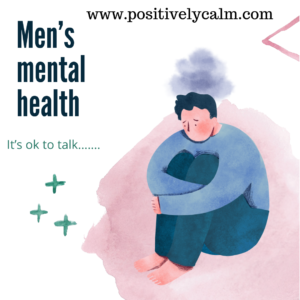Harnessing the Power of Hypnotherapy for Men’s Mental Health: A Path to Healing

In today’s fast-paced world, mental health has become a critical concern for people of all genders. However, men often face unique challenges when it comes to addressing their mental well-being. The traditional societal expectations of stoicism and emotional restraint can make it difficult for men to seek help. In this blog, we explore an effective and often overlooked avenue for men’s mental health: hypnotherapy. We’ll delve into how hypnotherapy works, its benefits for men’s mental health, and how it can be a transformative tool in the pursuit of emotional well-being.
Understanding Hypnotherapy
Hypnotherapy, a therapeutic technique that involves inducing a deep state of relaxation and heightened suggestibility, has gained prominence in recent years for its effectiveness in addressing various mental health concerns. Contrary to common misconceptions, hypnotherapy is not about mind control or manipulation; it is a collaborative process between the client and the therapist. During a hypnotherapy session, the client enters a trance-like state, where they are more receptive to positive suggestions and can explore and address deep-seated issues.
Breaking Down the Stigma
One of the major barriers to men seeking help for their mental health is the stigma surrounding it. Men are often discouraged from expressing vulnerability or seeking therapy, which can lead to the suppression of emotions and unresolved issues. Hypnotherapy offers a unique solution by providing a safe and non-threatening environment for men to explore their thoughts and feelings without judgment. It encourages them to break down the walls of silence and stigma, paving the way for healthier emotional expression.
Benefits of Hypnotherapy for Men’s Mental Health
- Stress and Anxiety Management: Hypnotherapy is highly effective in reducing stress and anxiety levels. Men facing workplace pressures, relationship challenges, or other stressors can benefit from learning relaxation techniques and coping strategies through hypnosis.
- Overcoming Trauma: Men who have experienced trauma, whether it be from combat, accidents, or childhood experiences, often struggle with PTSD and related mental health issues. Hypnotherapy can help them process and heal from these traumatic experiences, providing relief and a path toward recovery.
- Anger Management: Traditional gender expectations can lead to suppressed anger, which can have negative consequences for mental health. Hypnotherapy can help men explore the root causes of their anger and develop healthier ways to manage and express it.
- Boosting Self-Esteem: Many men grapple with self-esteem issues but may find it difficult to address them openly. Hypnotherapy can uncover the underlying beliefs and insecurities that contribute to low self-esteem, empowering individuals to build a healthier self-image.
- Addiction Recovery: Substance abuse and addiction can take a severe toll on men’s mental health. Hypnotherapy can be a valuable complement to addiction treatment by addressing the underlying emotional and psychological triggers driving addictive behaviours.
Case Studies and Success Stories
To illustrate the effectiveness of hypnotherapy in improving men’s mental health, let’s explore a few real-life examples. John, a combat veteran, struggled with PTSD and anger issues. Through hypnotherapy, he learned to manage his emotions and find peace. Mark, battling addiction for years, found hypnotherapy invaluable in addressing the root causes of his addiction and maintaining sobriety.
A client I had, Jason, saw me for quit smoking and was so impressed he came back to give up alcohol altogether. Every year on the anniversaries he likes to send a text to remind me and himself how well he has done. He is now in his seventh year.
Another client, Ian, had been suffering from erectile dysfunction, something that many men really struggle to talk about. Working here, in a safe and confidential environment we were able to break down his anxieties and get his sex life back on track.
These success stories emphasize the transformative potential of hypnotherapy for men seeking mental wellness.
*Names changed to maintain confidentiality
The Role of Professional Hypnotherapists
It’s important to emphasize that hypnotherapy should be conducted by trained and certified professionals. These experts are skilled in creating a safe and supportive environment for clients to explore their subconscious minds and work through their mental health challenges. It is also a good idea to look at the experience of the individual therapist and how long they have been in practice. There are many new therapists qualifying and claiming, straightaway, that they can work with all manner of symptoms although many of these areas need specialised additional training. Make sure they are a member of a Professional governing body and CNHC registered.
Furthermore it is important to choose the right therapist for you.
In a society that often expects men to be emotionally resilient, hypnotherapy offers a unique and effective approach to addressing men’s mental health concerns. It empowers men to break free from stigma, heal from trauma, manage stress, and achieve emotional well-being. Through the guidance of trained professionals, men can harness the power of hypnotherapy on their path to healing.

